Iran Says Unblocked Funds To Be Used For 'Non-Sanctioned Goods'
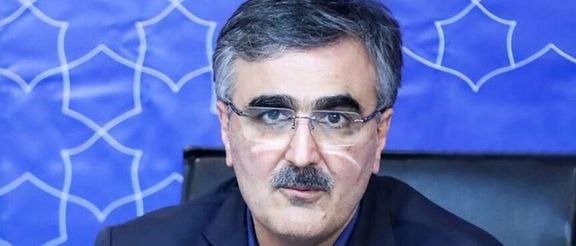
Iran's central bank chief said on Saturday that all of Iran's frozen funds in South Korea had been unblocked and would be used for "non-sanctioned goods".

Iran's central bank chief said on Saturday that all of Iran's frozen funds in South Korea had been unblocked and would be used for "non-sanctioned goods".
Mohammad-Reza Farzin's post on social media appeared to confirm comments a day earlier by Washington, which said there would be restrictions on what Iran could do with any funds unfrozen under an emerging deal that has led to the release of five Americans from prison to house arrest in Tehran.
White House spokesperson John Kirby said Iran could only access the funds for basic necessities of humanitarian nature. An estimated $6 billion in Iranian assets have been held in South Korea.
"Essentially, the funds can only be accessed for food, medicine, medical equipment that would not have a dual military use," he said. "And there will be a rigorous process of due diligence and standards applied with input from the US Treasury Department."
However, It is not clear how the US will control the disbursements of the funds, which will be kept in six Iranian bank accounts in Qatar in euros, as any transfer of funds will be outside US control of dollar-denominated transactions.
Earlier, Iran's foreign ministry and government media insisted that the unfrozen funds would be under Tehran's direct and unrestricted control.
The five Americans will be allowed to leave Iran once the funds are unfrozen, a source familiar with the matter told Reuters.
"Congratulations to the foreign exchange diplomacy team for successfully releasing seized foreign currency resources," he said in the post on X.
He added that the costs of converting the funds from South Korea's won currency to euros would be accepted by the "third country" where the money would be deposited to buy "non-sanctioned goods".
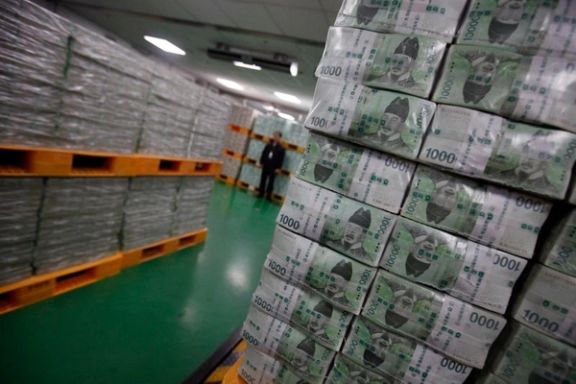
Some Iranian politicians and many citizens on social media have offered mixed reactions to the news about the release of Iran's frozen assets as part of a prisoner swap.
However, most Iranian social media users were explicit in stating that the Iranian American dual nationals are hostages, not individuals who were wrongly imprisoned, a euphemism that even some US sources and figures tend to use.
President Ebrahim Raisi’s Deputy Chief of Staff for Political Affairs, Mohammad Jamshidi wrote in a tweet on Thursday night: “After releasing Iran’s Frozen assets in Iraq, the release of all of Iran’s funds in South Korea has started. The prisoners the United States is interested in will remain in Iran until the money is fully transferred to Iran.”
Meanwhile in a tweet in English, Jamshidi wrote: “Hopefully, Iranians held hostage by the US will be freed. US prisoners in Iran will leave simultaneously with the irreversible release of our illegally held citizens and the full transfer of illegally held assets in South Korea, similar to the recently freed assets in Iraq.”
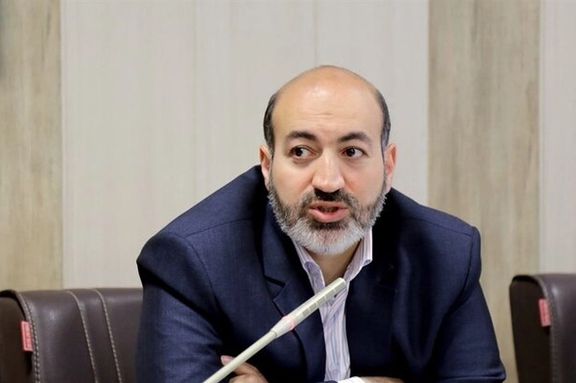
An Iranian commented on social media, “There is no money. This is a credit held by banks in Qatar for purchasing food and medicine,” and that "Well-connected individuals are getting ready to embezzle the money."
A former reformist lawmaker reacted to the news by tweeting "Can one ever be humiliated more than this? According to Iran’s laws, those prisoners are Iranian citizens, and their release has nothing to do with the United States. By the way, If they were spies, why they are being released, and if they were not spies, why they have been arrested?”
Conservative journalist Vahid Hajipour quoted Fars News Agency in a tweet as having reported that Iran’s frozen money in South Korea will go to Qatar and will be used to import goods that are not subject to US sanctions. Hajipour added: "This is exactly the same mechanism that was used for Iran’s frozen money in Iraq. What does this mean? It means that it is the United States that makes the decision about which goods can be bought by Iran’s money.” Using the Islamic Republic officials’ jargon about the deals between Iran and the United States, Hajipour added: “Welcome to watch Iran’s dignified diplomacy.”
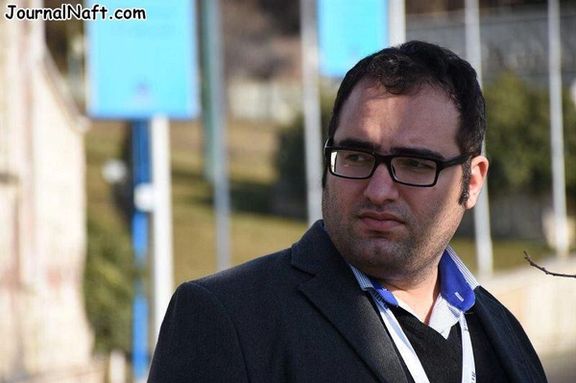
Meanwhile, a member of the Iranian nuclear negotiator team, Mohammad Marandi wrote on Twitter: "This is a dishonest claim manufactured by bitter people. Iran will have full and direct access to its released assets, there will be no Qatari companies involved, Iranian banks will have full control, and they can purchase goods and services without any limitation or restriction." Marandi was responding to US an Iran-watcher who had quoted Ali Vaez of the Iran Crisis Group as having said: " All Iran can do...is submit orders to a bank in Doha for food and medicine and a limited number of medical equipment...The bank in Doha would pay for the goods, and Qatari companies would deliver them to Iran. Iran has no direct access to the funds at all.'
In an optimistic analysis published by Etemad Online website political analyst Abdolreza Faraji Rad opined that the development is part of a wider unwritten agreement between Iran and the United States which is supposed to also cover other issues. Although Faraji wrote the piece in a way as if a nuclear deal is going to be within reach, the media in Europe and United States reported that any wider agreement is meant to also restrict Iran's regional military ambitions and prevent its proxy groups from attacking US bases in the region.
Meanwhile, Nour News, a media outlet close to Iran's Supreme Council of National Security also wrote that although negotiations between Tehran and Washington took a long time to lead to an agreement, "Now the situation is changing."
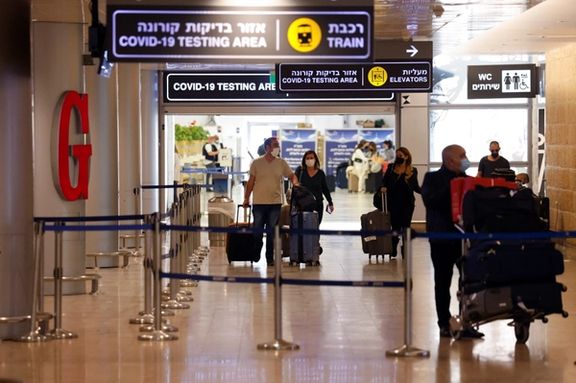
Israel's domestic intelligence agency, Shin Bet claimed on Friday to have successfully thwarted an Iranian espionage operation.
A Jewish Iranian individual was apprehended upon entry into the country with a seemingly innocuous tissue box that concealed surveillance equipment.
The detained individual, who has family ties in Israel, confessed during interrogation at Ben Gurion Airport that he had been dispatched by Iranian security operatives to spy on Israeli targets. Discovered in possession of cellphones, power banks, and currency, the individual was denied entry and subsequently deported to Iran.
"The event is indicative of a broader Iranian campaign to establish espionage and terror networks within Israel," stated the Shin Bet in an official release.
Iran's mission to the United Nations in New York abstained from immediate comment on the matter to news agencies.
In response to queries regarding the deportation rather than legal prosecution of the suspect, a security official, speaking to Reuters, elucidated that the decision took into account various operational considerations. The agency assessed that the suspect had been coerced and driven by financial incentives. The official further noted that the legal viability of prosecution was deemed "low," given the individual's non-Israeli citizenship status.
The ongoing confrontation between Israel and Iran has spanned decades, characterized by mutual accusations of sabotage and conspiracy to assassinate.
The World Jewish Congress estimates that before the establishment of the Islamic Republic Iran was home to around 80,000 Jews. Subsequently, most emigrated from the country, still leaving behind what is believed to be the largest Jewish community in the Middle East, outside of Israel.
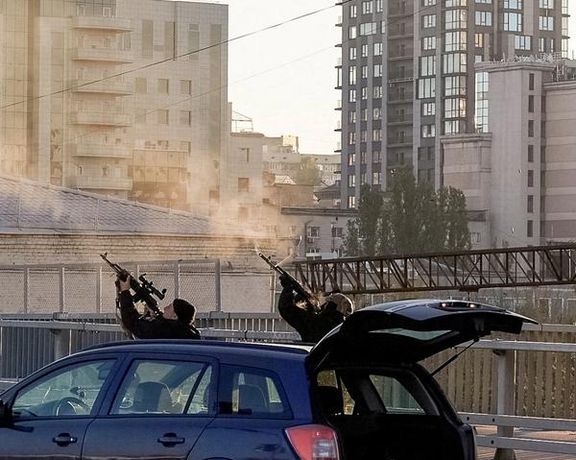
A group of European Union candidate countries have aligned themselves with a recent decision by the bloc to impose sanctions on Iran for its support for Russia's war on Ukraine.
On July 20, the EU Council adopted a decision introducing a fresh sanctions framework aimed at Iran's involvement in supporting Russia's military. This framework includes a ban on exporting components for Unmanned Aerial Vehicles (UAVs) from the EU to Iran, as well as provisions for potential travel bans and asset freezes targeting individuals connected to Iran's UAV program.
The candidate countries - North Macedonia, Montenegro, Albania, Ukraine, Republic of Moldova, and Bosnia and Herzegovina - along with EFTA members Iceland and Liechtenstein, have aligned themselves with this Council decision. This alignment signifies their commitment to adapting their national policies to reflect the provisions outlined in the decision.
The European Union commended these countries for their commitment and welcomes their alignment with the sanctions.
This alignment comes in the wake of a contentious international debate sparked by the delivery of Iranian-manufactured drones to Russia. This issue gained significant attention following Russia's invasion of Ukraine. While Iran initially refuted allegations of supplying Shahed suicide drones to Russia, Foreign Minister Hossein Amir-Abdollahian later admitted to the transfers in November 2022. He asserted that the deliveries occurred before the Ukrainian conflict commenced, and on a limited scale.
However, Ukrainian authorities strongly contested Iran's account, presenting substantial physical evidence suggesting ongoing and substantial drone deliveries from Iran.
In response to these allegations, the European Union, along with the United Kingdom, the United States, and Canada, implemented punitive measures against Iran.
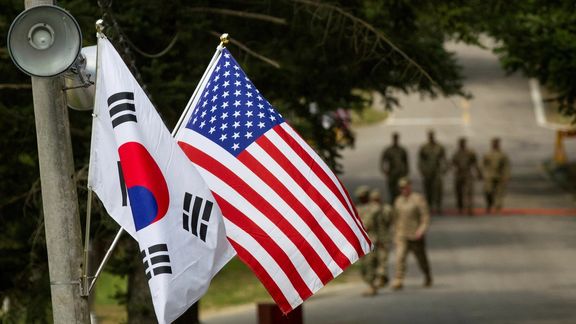
Conflicting statements regarding the allocation of Iran's unfrozen funds persist between Washington and Tehran, with Iran refuting any imposed limitations.
The White House stressed on Friday that there would be restrictions on what Iran could do with any funds unfrozen under an emerging agreement that has led to the release of five Americans from prison to house arrest in Tehran.
White House spokesperson John Kirby told reporters that the United States would have "full visibility" into where any released Iranian funds are directed and used. An estimated $6 billion in Iranian assets are now held in South Korea.
"Essentially, the funds can only be accessed for food, medicine, medical equipment that would not have a dual military use," he said. "And there will be a rigorous process of due diligence and standards applied with input from the US Treasury Department."
But Iran immediately had a different reaction to the news of the prisoner release deal. “The Islamic Republic will decide how to use the released funds, and these funds will be appropriated for the various needs of the country by the appropriate authorities,” the foreign ministry said in a statement on Friday.
Iranian media on Saturday insisted that the money, which for now is $6 billion held in two South Korean banks, will go into commercial bank accounts in Qatar and the allocation of these funds “will be under the purview of the Islamic Republic and will be used for various needs of the country,” Faraz daily in Tehran reported based on information from government sources.
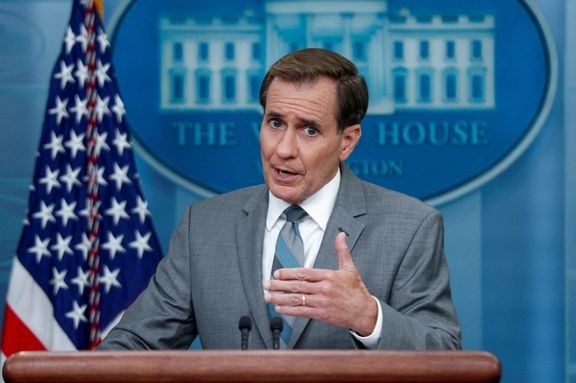
Control of the Funds
Faraz Daily, a relatively independent website by Iranian standards, said Saturday that the funds will go from South Korea to Switzerland to be converted into euros, and then wired to two banks in Qatar.
This sounds simple and non-controversial. But the report added that after reaching Qatari banks the funds will be transferred to a few accounts opened in Qatar by Iranian banks “so the appropriation of the money can be under Iran’s control.”
The Iranian version of the deal becomes more controversial, as Faraz Daily said that once the euro funds are deposited in the Iranian accounts, the Central Bank of Iran “will have 100 percent full and direct control” on how to appropriate the funds “for essential goods, medicine and other needs.”
If Iran has accepted limitations on its nuclear program for freeing its assets, as media reports indicate, it is to be expected that Tehran will try to deny any US control over the unfrozen funds, mainly for domestic public opinion. However, Kirby’s formulation that the United States will have “full visibility” is vague and different from having a veto power on what Iran spends the funds for.
Here it becomes clear why the funds will be in euros. Washington can control international dollar transactions and be aware of all the details of wire transfers, including the recipients. But in case of euros, the US must mainly rely on information it is given by Qatari banks.
Faraz Daily also said that Iranian businesses can request disbursements of the funds. Most so-called businesses are tied to the Iranian government and the Revolutionary Guard, and the US cannot have full information if sanctioned companies are benefiting from the unfrozen funds being transferred in euros.
While it is clear that a detailed mechanism has been or is being set up for the funds, the Biden administration is not disclosing the full extent of the agreement and the degree to which it will be able to have a say in any inappropriate use of the funds.
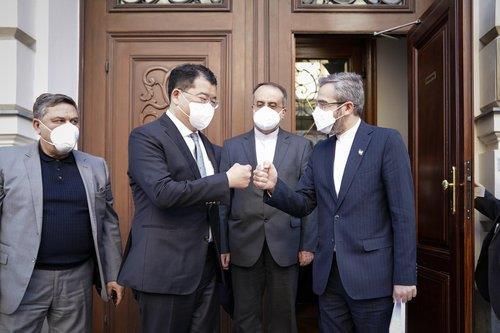
Is there a deal to restrict Iran’s nuclear activities?
Fars news agency affiliated with Revolutionary Guard claimed Friday that the agreement with the United States is not “oil for food” program, similar to a scheme imposed on Iraq 1995, when Baghdad could sell its oil but could only import humanitarian needs.
Fars boasted that while during the presidency of Hassan Rouhani the US was offering to free one or two billion dollars in exchange for Iran not to enrich uranium to 20 percent, “now they will free all the blocked funds for the release of prisoners.”
In another report on Saturday, Fars quoted unnamed Iranian officials as saying that the nuclear program is in full swing, “according to existing plans of Iran’s atomic energy agency.” It also claimed that the December 2020 law passed by parliament mandating reduction of IAEA monitoring and higher uranium enrichment is in place and fully adhered to.
On Friday, the Wall Street Journal cited people familiar with the matter as saying Iran has significantly slowed the pace at which it is accumulating near weapons-grade enriched uranium and has diluted some of its stockpile.
Kirby said he could not confirm the report but said "any steps that Iran might take to slow down enrichment certainly would be welcome."
"We're not in active negotiations about the nuclear program," he added. "But certainly those sorts of steps, if they were to be true, would be welcome."
While a significant opposition is emerging in the United States against the release of the funds, an Israeli source, who wished to remain anonymous, revealed to Iran International's correspondent in Israel that the agreement between the US and the regime is not merely a tentative understanding but a comprehensive accord.
Emphasizing that the agreement carries significant ramifications, signaling a shift beyond conventional diplomatic engagements between nations, the source said the Israeli government is concerned about the expansion of the accord, like many other critics who believe the deal would embolden Iran in its hostage taking policy.
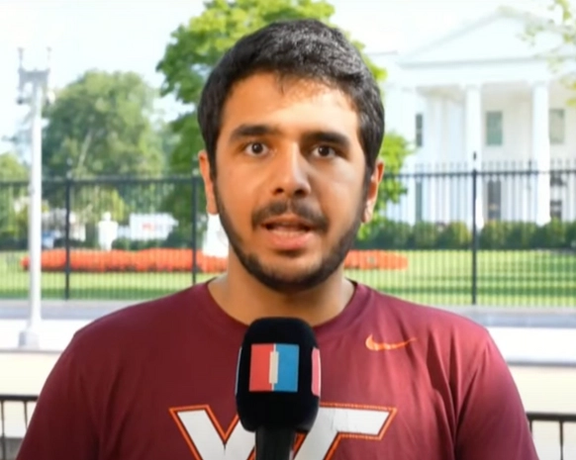
A family member of a US green card holder currently held prisoner in Iran voiced growing concerns over the uncertain fate of his father.
Iran and the United States announced Thursday that several US citizens held hostage by Tehran had been released from prison into house custody and may be freed in exchange for $6 billion frozen in South Korea.
In a solemn family sit-in outside the White House, Darin Dalili, Shahab Dalili's son, an Iranian citizen with permanent residence status in the United States who remains imprisoned in Iran, expressed his disappointment and concern regarding the US government's response to prisoners with green cards.
Dalili conveyed his disappointment with US Secretary of State Anthony Blinken's recent statement indicating a lack of knowledge about prisoners with green cards, emphasizing that his family had been in communication with the US State Department for years, striving to highlight the situation. He asserted that such a stance from the US government could be interpreted as yielding to pressures by the Islamic Republic.
Highlighting a discrepancy between policy and practice, Dalili pointed out the apparent contradiction with the Robert Levinson Law, which addresses the return of hostages, including US permanent residents. He underlined that despite this law, a green card holder remains imprisoned in Iran without clear resolution or intervention from US authorities.
Earlier, Secretary of State Anthony Blinken addressed the matter, saying that, aside from the five American citizens currently imprisoned in Iran, the US government lacks awareness of any other American citizens being held in the country.